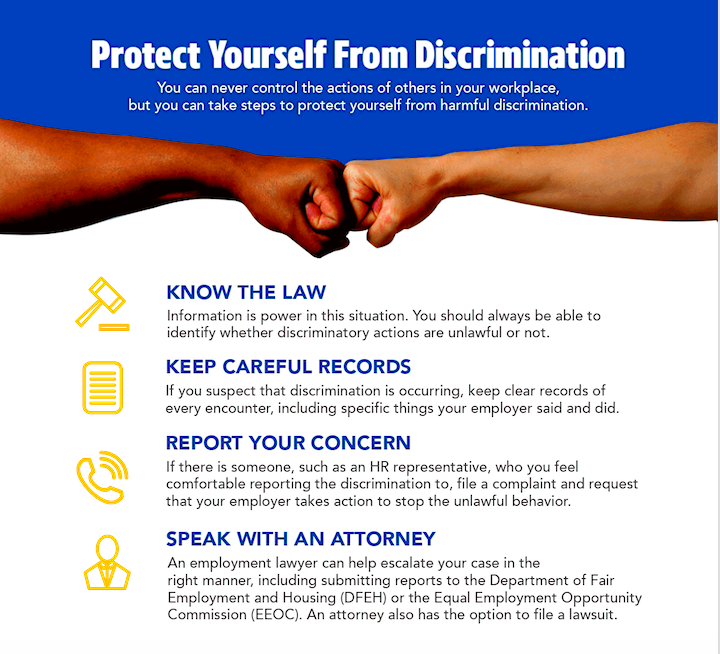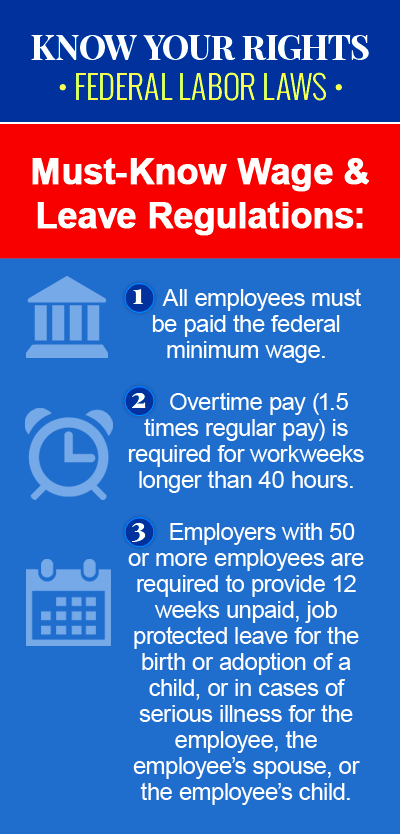Texas Anti-Discrimination Laws Protecting Employee Rights
Texas has put in place robust anti-discrimination laws to ensure that employees are treated fairly and with respect in the workplace. These laws protect individuals from discrimination based on various factors, promoting a more inclusive environment. Understanding these laws is crucial for both employees and employers to maintain a workplace free from bias and discrimination.
Types of Discrimination Covered by Texas Laws

Texas anti-discrimination laws address several types of discrimination that can occur in the workplace. Here are the main types:
- Race Discrimination: Treating someone unfavorably due to their race or characteristics associated with that race.
- Gender Discrimination: Unfair treatment based on gender, including sexual harassment.
- Age Discrimination: Discrimination against employees aged 40 or older.
- Disability Discrimination: Failing to provide reasonable accommodations for employees with disabilities.
- Religious Discrimination: Treating employees unfavorably due to their religious beliefs.
- National Origin Discrimination: Discrimination based on an individual’s country of origin or ethnicity.
These types of discrimination can manifest in various ways, from hiring practices to promotions and terminations. Understanding them helps create a fair workplace for everyone.
Protected Classes Under Texas Anti-Discrimination Laws

Texas law identifies specific protected classes that are shielded from discrimination in the workplace. These include:
| Protected Class | Description |
|---|---|
| Race | Includes all racial backgrounds, ensuring no one faces discrimination based on race. |
| Color | Refers to discrimination based on skin color. |
| Gender | Covers all gender identities, including transgender individuals. |
| Age | Protects individuals aged 40 and above from age-related discrimination. |
| Disability | Includes individuals with physical or mental disabilities. |
| Religion | Protects individuals from discrimination based on their religious beliefs. |
| National Origin | Covers discrimination based on an individual’s place of origin. |
Recognizing these protected classes is essential for both employees seeking to understand their rights and employers aiming to create a compliant workplace.
Key Provisions of the Texas Labor Code
The Texas Labor Code includes vital provisions that protect employees from discrimination and promote fair treatment in the workplace. These laws are designed to create a work environment where everyone has equal opportunities. Key provisions include:
- Employment Discrimination: Employers cannot discriminate against employees based on their race, color, religion, sex, national origin, age, or disability.
- Harassment Prevention: The law prohibits harassment that creates a hostile work environment or affects employment decisions.
- Reasonable Accommodations: Employers must provide reasonable accommodations for employees with disabilities, unless it causes undue hardship.
- Equal Pay: Employees must receive equal pay for equal work, regardless of gender, ensuring fair compensation practices.
- Retaliation Protection: Employees are protected from retaliation for reporting discrimination or participating in investigations related to discrimination claims.
These provisions play a crucial role in promoting a respectful and inclusive workplace. Understanding these laws helps employees know their rights and empowers employers to create a positive work culture.
Filing a Discrimination Complaint in Texas
If you believe you have experienced discrimination at work, it’s important to know how to file a complaint. Here’s a step-by-step guide to help you navigate the process:
- Document the Incident: Keep a record of what happened, including dates, times, witnesses, and any relevant correspondence.
- Contact Your Employer: Report the issue to your supervisor or human resources. Many employers have policies for handling complaints.
- File a Complaint with the Texas Workforce Commission: If your employer doesn’t resolve the issue, you can file a complaint with the Texas Workforce Commission (TWC). This must be done within 180 days of the discriminatory act.
- Investigation: The TWC will investigate your complaint and may contact you for more information.
- Right to Sue: If the TWC finds evidence of discrimination, you may receive a “right to sue” letter, allowing you to take your case to court.
Filing a complaint can feel daunting, but knowing the steps can make the process smoother and more manageable.
Employer Responsibilities Under Texas Laws
Employers in Texas have specific responsibilities to ensure they comply with anti-discrimination laws. Understanding these duties helps create a fair workplace. Here are the main responsibilities:
- Implement Anti-Discrimination Policies: Employers must have clear policies prohibiting discrimination and harassment in the workplace.
- Training and Awareness: Conduct regular training sessions for employees and management on recognizing and preventing discrimination.
- Investigate Complaints Promptly: Employers must take all complaints seriously and conduct thorough investigations to address any issues.
- Provide Reasonable Accommodations: Employers are required to provide reasonable accommodations for employees with disabilities unless it poses undue hardship.
- Retaliation Protection: Employers cannot retaliate against employees who report discrimination or participate in investigations. This includes protecting employees from termination, demotion, or harassment.
By fulfilling these responsibilities, employers can foster a positive work environment and reduce the risk of discrimination claims.
Consequences of Violating Anti-Discrimination Laws
Violating anti-discrimination laws in Texas can lead to serious repercussions for employers and create a toxic work environment for employees. Understanding these consequences is crucial for both parties. Here are the main outcomes:
- Legal Penalties: Employers found guilty of discrimination may face significant fines, legal fees, and costs associated with litigation.
- Damages to Employees: Victims of discrimination can seek compensation for lost wages, emotional distress, and punitive damages, depending on the severity of the violation.
- Reputational Damage: Companies that are publicly accused of discrimination may suffer damage to their reputation, affecting customer trust and employee morale.
- Corrective Actions: Courts may require employers to implement corrective measures, such as training programs or changes in policies to prevent future violations.
- Increased Scrutiny: After a violation, employers may face increased scrutiny from regulatory agencies, leading to audits and further investigations.
Overall, the consequences of violating these laws emphasize the importance of maintaining a fair and respectful workplace. Employers must take proactive steps to ensure compliance and protect their employees’ rights.
Frequently Asked Questions
Understanding anti-discrimination laws can raise many questions. Here are some frequently asked questions that may help clarify common concerns:
- What should I do if I experience discrimination at work? Start by documenting the incidents and reporting them to your supervisor or HR department. If necessary, file a complaint with the Texas Workforce Commission.
- How long do I have to file a complaint? You must file a complaint within 180 days of the discriminatory act to ensure it is investigated.
- Can my employer retaliate against me for filing a complaint? No, Texas law prohibits retaliation against employees who report discrimination or participate in investigations.
- What if my employer doesn’t take my complaint seriously? If your employer fails to address your complaint, you can escalate the issue by contacting the Texas Workforce Commission.
- Are there any costs associated with filing a complaint? No, filing a complaint with the Texas Workforce Commission is free of charge.
These FAQs provide essential information to help employees understand their rights and the processes involved in addressing discrimination.
Conclusion on Employee Rights in Texas
Employee rights in Texas are protected by a framework of anti-discrimination laws designed to promote equality and prevent unfair treatment in the workplace. It’s crucial for both employees and employers to understand these rights to foster a healthy work environment. Employees should feel empowered to speak up against discrimination and know the steps to take when their rights are violated.
On the other hand, employers must recognize their responsibilities under the law to create inclusive workplaces. By prioritizing compliance with anti-discrimination laws, employers not only protect themselves from legal consequences but also contribute to a positive organizational culture that values diversity and respect.
In summary, knowledge of Texas anti-discrimination laws and employee rights is vital for everyone in the workplace. Being informed helps create a safer, more equitable environment for all.


